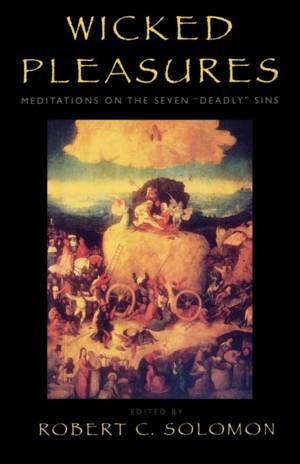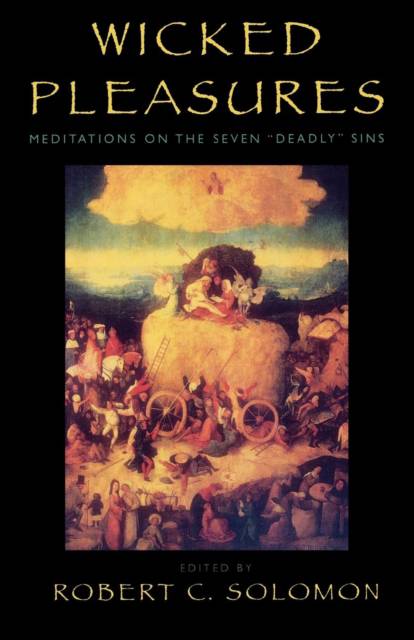
- Afhalen na 1 uur in een winkel met voorraad
- Gratis thuislevering in België vanaf € 30
- Ruim aanbod met 7 miljoen producten
- Afhalen na 1 uur in een winkel met voorraad
- Gratis thuislevering in België vanaf € 30
- Ruim aanbod met 7 miljoen producten
Zoeken
€ 46,95
+ 93 punten
Omschrijving
The seven deadly sins have provided gossip, amusement, and the plots of morality plays for nearly fifteen hundred years. In Wicked Pleasures, well-known philosopher, business ethicist, and admitted sinner Robert C. Solomon brings together a varied group of contributors for a new look at the old catalogue of sins. Solomon introduces the sins as a group, noting their popularity and pervasiveness. From the formation of the canon by Pope Gregory the Great, the seven have survived the sermonizing of the Reformation, the Inquisition, the Enlightenment, the brief French reign of supreme reason, the apotheoses of capitalism, communism, secular humanism and postmodernism, the writings of numerous rabbis and evangelical moralists, two series in the New York Times, and several bad movies. Taking their cue from this remarkable history, the contributors, including Thomas Pynchon, allowed one sin apiece, provide a non-sermonizing and relatively light-hearted romp through the domain of the deadly seven.
Specificaties
Betrokkenen
- Auteur(s):
- Uitgeverij:
Inhoud
- Aantal bladzijden:
- 174
- Taal:
- Engels
Eigenschappen
- Productcode (EAN):
- 9780742508453
- Verschijningsdatum:
- 20/12/2000
- Uitvoering:
- Paperback
- Formaat:
- Trade paperback (VS)
- Afmetingen:
- 141 mm x 220 mm
- Gewicht:
- 249 g

Alleen bij Standaard Boekhandel
+ 93 punten op je klantenkaart van Standaard Boekhandel
Beoordelingen
We publiceren alleen reviews die voldoen aan de voorwaarden voor reviews. Bekijk onze voorwaarden voor reviews.











